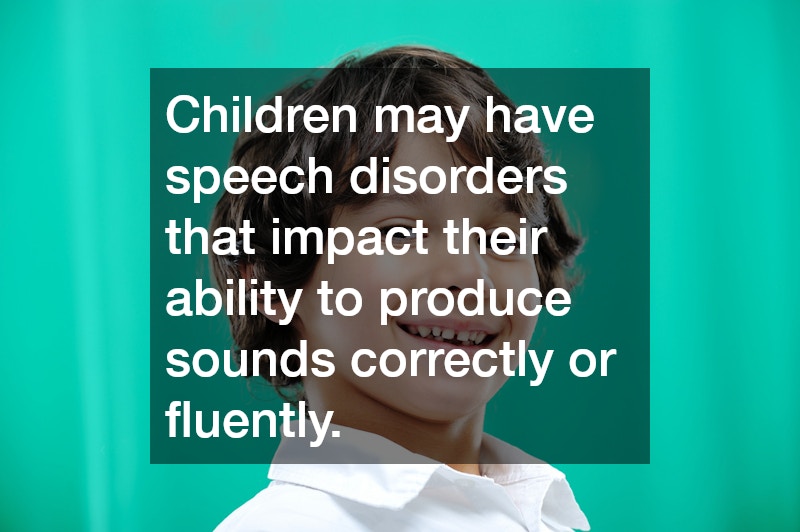Speech language pathologists (SLPs) play a crucial role in helping individuals of all ages improve their communication skills. These healthcare professionals work with patients who have difficulties with speech, language, voice, and even swallowing. While their work spans a wide range of age groups and disorders, one of the most impactful areas of their practice is pediatric speech language pathology. For families in the city, finding the right support, such as pediatric speech language pathology in New York, can make a significant difference in a child’s development. But what exactly does a speech language pathologist do? In this blog, we’ll explore the roles, responsibilities, and importance of speech language pathologists, particularly in pediatric care.
Understanding the Role of a Speech Language Pathologist
Speech language pathologists, often referred to as SLPs, are licensed professionals who assess, diagnose, and treat communication and swallowing disorders. These disorders can stem from a variety of causes, including developmental delays, neurological conditions, injury, or illness. The goal of an SLP is to help individuals improve their communication abilities, ensuring they can engage effectively in daily life.
SLPs work in a variety of settings, including schools, hospitals, rehabilitation centers, and private practices. In pediatric speech language pathology, the focus is on children who may have trouble with speech and language development, which can affect their ability to learn, socialize, and engage in their environment.
What Do SLPs Do in Pediatric Speech Language Pathology?
For children, early detection and intervention are crucial when it comes to speech and language issues. Pediatric speech language pathologists are specialized in working with children from infancy through adolescence. They help children overcome difficulties with speaking, understanding language, forming sentences, and even social communication.
Here’s a closer look at the specific tasks pediatric SLPs handle:
1. Speech Disorders
Children may have speech disorders that impact their ability to produce sounds correctly or fluently. This can include issues like stuttering, articulation problems (difficulty producing specific sounds), or phonological disorders. An SLP helps children practice forming sounds and improve their pronunciation so they can communicate clearly.
2. Language Disorders
Language disorders differ from speech disorders in that they relate to difficulties understanding or using words in context. Children with language disorders may struggle with receptive language (understanding what others are saying) or expressive language (using words to convey thoughts and ideas). Pediatric speech language pathology focuses on helping children build vocabulary, structure sentences, and use language effectively in social settings.
3. Social Communication Disorders
In addition to speech and language disorders, some children may struggle with social communication. This can be common in children with autism spectrum disorder (ASD). These children may have difficulty understanding social cues, taking turns in conversation, or using appropriate gestures. An SLP works on enhancing social communication skills, ensuring children can better interact with their peers and environment.
4. Feeding and Swallowing Disorders
Some speech language pathologists also work with children who have feeding and swallowing issues, which can arise from medical conditions, neurological impairments, or developmental delays. Pediatric SLPs are trained to help children who have difficulty chewing, swallowing, or managing food textures. These challenges can impact a child’s nutrition and overall health, so timely intervention is essential.
Why Pediatric Speech Language Pathology Matters
When it comes to children’s development, communication is key. A child’s ability to understand and use language effectively is critical for academic success, social interaction, and emotional well-being. Children with speech and language disorders can often feel frustrated, isolated, or misunderstood, which can affect their confidence and overall development.
This is where pediatric speech language pathology in New York plays an important role. In a bustling city with diverse populations and numerous educational demands, the need for effective communication support is paramount. Pediatric SLPs work closely with families, teachers, and other healthcare providers to create tailored therapy plans that address each child’s unique challenges. By providing early intervention, SLPs can help children overcome obstacles and set the stage for long-term success in school and life.
Speech language pathologists are essential in helping individuals of all ages improve their communication skills, but their work in pediatric care is particularly impactful. Through diagnosing and treating speech, language, social communication, and feeding disorders, pediatric SLPs help children develop the skills they need to thrive in school, at home, and in social settings. For families seeking pediatric speech language pathology in New York, finding the right SLP can make a world of difference in a child’s life, offering them the tools and support needed to reach their full potential.
.




